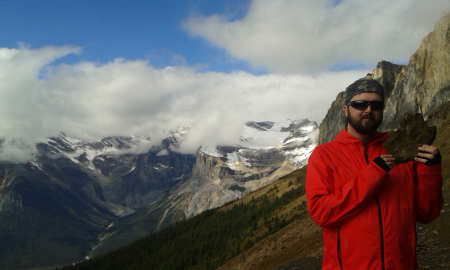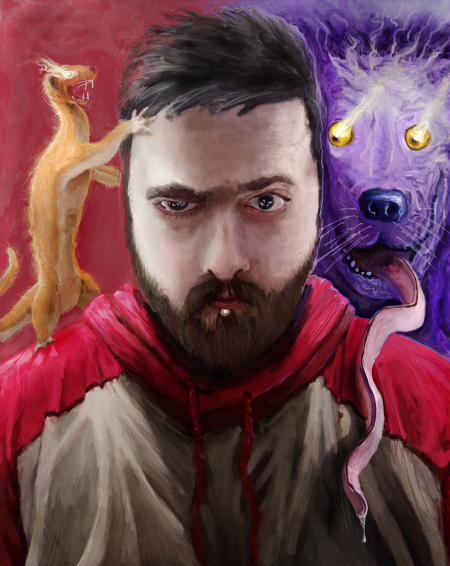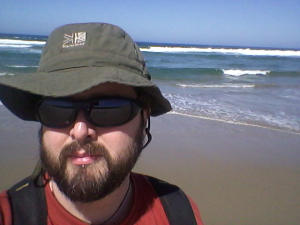Your Research. Your Life. Your Story.
A magnetic community of researchers bound by their stories
Every researcher has a story. What’s yours?
Brain weasels, black dogs and dealing with depression during a PhD

I wanted to write a few words about doing a PhD with depression, but I didn’t think a detailed guide with the specific survival strategies I use was appropriate. Not the least, because all of our experiences are so unique in terms of how depression manifests itself and affects our lives. Instead, this article is more of a reflection of how depression has affected my life and continues to do so. Writing things helps me understand what’s going on in my head. If it helps anyone else, then that would be great. As much as I hate the thought of anyone else feeling like this, it has always helped to know that I am not alone. No matter how isolated I might be at times in my own head.

I was diagnosed with severe clinical depression and specific learning difficulties (the two often interact in unhelpful ways) at the age of 32. In retrospect, it’s been something that I have really struggled with all my life, even if I didn’t understand at the time. Even as a wee small boy, I felt as though I didn’t belong and shouldn’t exist. As I got older, things got worse and in my teen years, the depression hit like an extinction-level asteroid. I started to self-harm in a variety of ways as a coping mechanism. To me, depression feels like a wild restless energy and I was terrified that it would spill out and hurt someone. Self-harm gave me a sense of control and felt like a release valve when things became too much. I hated secondary (high) school, and rather than help, the adults around me wrote it off as foolish teen behaviour fuelled by computer games and heavy metal music. I’d always loved natural history, particularly rocks and fossils, and knew that that was what I wanted to do with my life. However, my school work floundered and after years of being told I was stupid and/or lazy and that “people like you don’t become scientists,” I gave up on being a geologist. Eventually, I slithered out of school with minimal qualifications.
After spending 12 years doing a variety of jobs – everything from working in a crisp (potato chip) factory to insurance call centres – I had the opportunity to study for a geology degree. While discussing how lost and pointless I felt, friends convinced me to try an online distance learning degree. It would use up what little disposable income I had, but I felt there was nothing to lose. To say it changed my life would be an understatement. It went well for the most part, but the past issues still remained. This time my tutors were supportive and trained to look out for learning difficulties and mental health issues. An initial chat led quickly to seeing specialists, and official diagnosis and treatment.
It still wasn’t plain sailing from there; it was still a struggle to complete a degree while working. But just the fact that I understood what was happening to me, and that there were supportive people backing me up, made all the difference. The degree led to a PhD at Oxford, and actually getting paid to do what I love. Not a day goes by where I take any aspect of my new life for granted. Even after 3.5 years here, and nearing the end of a very successful project, I fully appreciate the opportunities I have and how lucky I am to have them.

Despite knowing what an absolute d***ead depression can be, it still came very close to ruining my PhD. In my first six months, I had a really bad episode and came close to quitting, or possibly worse, because the depression convinced me that I had no place in science and was squandering someone else’s opportunity. Combine that with the fact that adjusting to the super-privileged world of Oxford, after coming from a low-income working-class background, was really difficult.
I tend to get what my BFF calls “Brain Weasels;” they get hold of an idea (e.g. my work is stupid and so am I) and then run relentlessly round my head till I can’t think of anything else and am exhausted. That’s when the Black Dog comes, spewing thick syrupy doubt that sticks and weighs me down while the Dog asks “Why are you even alive?” over and over. I’m not sad when I have an episode – depression is as distinct an emotion from sadness as sadness is from happiness. I just fill up with a roiling, crackling mass of energy and no longer want to exist.
Through a combination of medication and talking therapies, I have become able to spot the onset of such episodes and try to counter them, or at least brace myself. Finding a combination of treatments that help can take a while, and some of the medication can leave you feeling worse than before and changing requires weeks of adjustment. My coping strategies also include creative outlets like making music, painting and writing science fiction. Also socialising away from my work, luckily something that is easy in Oxford. I do physical exercise: running, weights, rowing, volunteering (helping others is unsurprisingly good at alleviating depressive symptoms, at least for me) or just walking around the parks. It’s true that the endorphins help stave off the clouds, but often it’s just good to wear myself out so I don’t have the energy to give myself shit.

I’ve compartmentalised my depression as Black Dogs and Brain Weasels, but really, it is as much a part of me as any of my other mental states. I’m starting to accept that maybe due to a combination of my life experiences and random genetics, my own brain is trying to kill me. It’s a chronic illness like any other and I am learning to manage it and get on with my life. I naively thought it might go away once life was stable and I was doing what I loved. The fact that it hasn’t happened has left me feeling confused and vulnerable and having to accept that the depression is outside of my control, though how I react to it is not. It is still really difficult to reconcile feeling this horrible when my life is so great, and that’s something I am still struggling to figure out.
I never thought to get help when I was younger because I thought that this was normal. I thought that everyone felt this way, but they could deal with it better than me. I am very glad that not everyone has to experience feeling this way. But I fully admit I’m pretty jealous of regular people because of that. I am sharing this mainly because I felt like it would be helpful for me to get it out of my head and onto the page. I am not sure if it has been, but if it helps someone with these issues to feel less isolated, or someone without them to understand, then that would be nice as well.
This story was published on February 1, 2019, on the blog Evidently Scientifical (available here) and has been republished here with permission.

Comments
You're looking to give wings to your academic career and publication journey. We like that!
Why don't we give you complete access! Create a free account and get unlimited access to all resources & a vibrant researcher community.

Your Research. Your Life. Your Story.
A magnetic community of researchers bound by their stories





